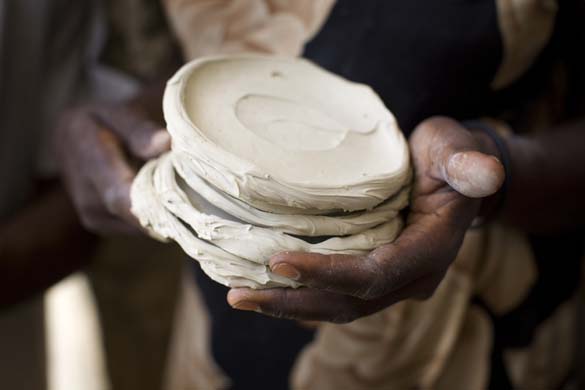Tensions mount in Haiti after voodoo ceremony attack
By M.J. Smith, Agence France-PresseFebruary 25, 2010
MICHAEL SMITH Supreme chief of Haitian voodoo Max Beauvoir is seen on Feb. 24, 2010 during interview with AFP in Port au Prince.
Photograph by: Thony Belizaire, AFP/Getty Images
MARIANI, Haiti - Haiti's supreme voodoo leader has vowed to wage "war" after Evangelicals attacked a ceremony organized by his religion honoring those killed in last month's massive earthquake.
The attack on Tuesday in the capital's sprawling Cite Soleil slum came amid rising religious tensions, as Protestant Evangelicals and other denominations recruit followers in the wake of the earthquake that killed more than 200,000.
Some of the fresh converts have said they did so because they believed God caused the earthquake.
"It will be war — open war," Max Beauvoir, supreme head of Haitian voodoo, told AFP in an interview at his home and temple outside the capital.
"It's unfortunate that at this moment where everybody's suffering that they have to go into war. But if that is what they need, I think that is what they'll get."
The quake also left more than a million homeless and left much of the capital and surrounding areas in ruins in this Caribbean nation of more than nine million.
Police said a pastor urged followers to attack the Cite Soleil ceremony, resulting in a crowd of people throwing rocks at the voodoo followers.
Rosemond Aristide, a police inspector in Cite Soleil, said he had since spoken with the pastor, who agreed to allow voodoo ceremonies to take place there.
But he would not explain why no arrests were made nor provide further details.
Beauvoir claimed the Protestant Evangelicals attacked the ceremony along with other people they hired, causing a number of injuries.
He also accused Evangelical denominations of using post-quake aid supplies such as food and medicine to try to "buy souls."
"I would like to see each one of them tied up in ropes and thrown in the sea, and I hope the best of them will be able to catch a plane and run away and leave in peace," the voodoo priest said.
"Because this is what we need right now — peace."
Asked whether he would encourage voodoo followers to respond with the same kind of violence, Beauvoir said he would.
"They have not been aggressors," he said of voodooists. "I think they are aggressed (attacked), and they will have to answer with the same type of aggression. I don't mean for (Evangelicals) to die. I am not out to kill them."
Speaking of Evangelical leaders in Haiti, Beauvoir said most of them studied in places like Alabama and Mississippi, "where they have learned hatred and fear."
"They say Jesus talks to them, and Jesus told them that voodoo should not be present in Haiti," he said.
About half of Haiti's population is believed to practice voodoo in some form, though many are thought to also follow other religious beliefs at the same time.
The religion — whose practitioners often use the vodou spelling as opposed to the Westernized version — evolved out of beliefs slaves from West Africa brought with them to Haiti. It is now deeply rooted in Haitian culture.
A voodoo priest named Boukman has been credited with setting off the country's slave rebellion in the late 18th century, which eventually led to the creation of the world's first black republic.
But Evangelicals have been making inroads in Haiti lately.
One Evangelical priest in the middle-class Port-au-Prince suburb of Petionville claimed Wednesday that more than 200 people came to his church to convert after the January 12 quake.
"They say that God struck the country," said Sainvoyus Raymond of the First Baptist Church of Petionville, adding that some of those who converted were previously voodooists.
Raymond, however, condemned the attack in Cite Soleil, saying violence should not be condoned and anyone was free to worship in whatever way they chose.
Rejecting claims that voodoo practices in the country were to blame for the killer quake, Raymond said instead that the disaster was God's response to all evil in Haiti, including violence and kidnapping.
Beauvoir said the government had brought the earthquake onto itself by denying the country's roots in favor of the beliefs and habits of "settlers," referring to Haiti's colonial past.
© Copyright (c) AFP



































































